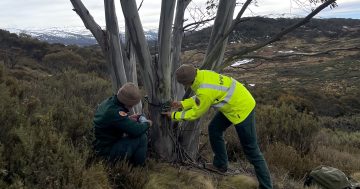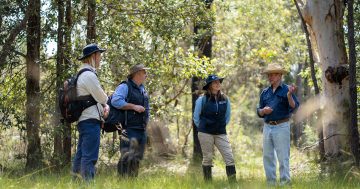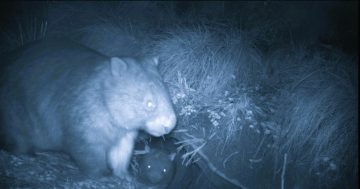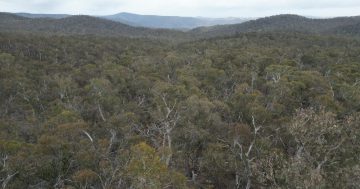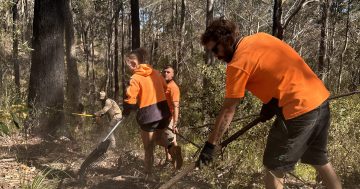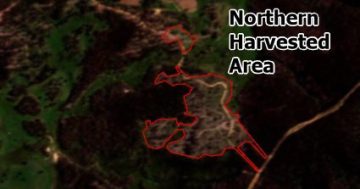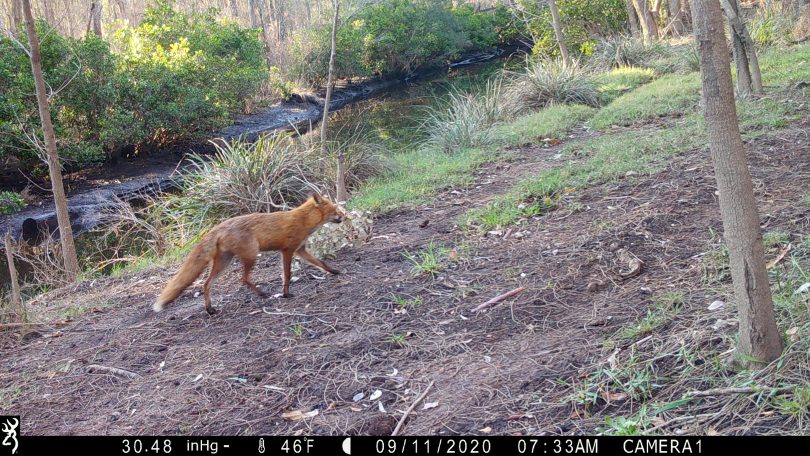
Camera traps are recording pest species in the Eurobodalla Shire. Photo: Supplied.
South East Local Land Services and local land managers are continuing to target pest animals in the Eurobodalla Shire under the Federal Government’s Bushfire Recovery for Wildlife and Their Habitat program.
Sonia Bazzacco, from South East Local Land Services, said managing pest species is essential to give native flora and fauna the best chance at recovering from the Black Summer bushfires.
“It’s a good time to work on managing pest species so that native plants and animals stand a better chance of survival and land managers are not experiencing further loss,” she said.
“With the help of the community here in the Eurobodalla, we’ve been targeting foxes, pigs, rabbits, wild dogs, deer and goats.
“It is critical to understand how pest animals are moving through the fire affected and unburnt landscape, and how this is impacting on native wildlife and livestock and pastures.”
South East Local Land Services is looking to work with both fire and non-fire affected land managers, as unburnt areas serve as refuges for both pest and native animals which compete for resources, or pest animals may prey on the native wildlife when both are concentrated together.
“We can provide monitoring cameras to land managers interested in finding out what native and pest species are present on their property,” said Ms Bazzacco.
“So far we have seen pests such as foxes, and natives including goannas, wombats, wallabies, brushtail possums and kangaroos.
“In time, we hope to see a greater diversity of native animals including gliders, bandicoots, long-nosed potoroos and more birds.
“The more land managers involved, and the more cameras in place, the greater the understanding we will get about the prevalence and movement of these species across our fire and non-fire affected landscapes.”
Control methods can be advised on once pest species have been identified.
“We also provide support to land managers in selecting and delivering the appropriate pest animal control methods for their situation,” said Ms Bazzacco.
For more information about the program or how to get involved, contact Sonia Bazzacco on 0429 998 585 or by email.







